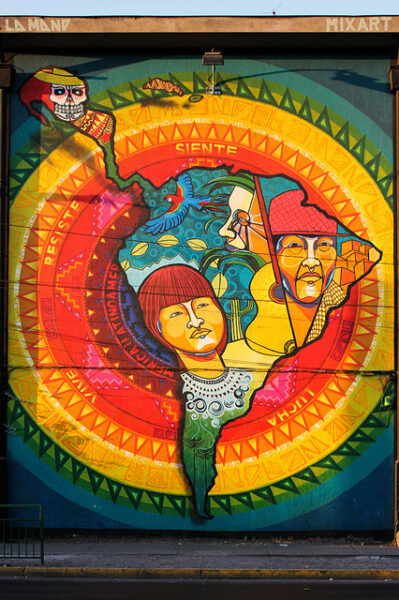From: Network in Defense of Humanity
Article in From the side of the heart Bulletin Year XI, Number II, Oct., 2023
By Emir Sader on August 15, 2023
Latin America has lived in the 21st century, the most important period of its history, up to the present. After having been the region of the world with the most and the most radical neoliberal governments, the continent has reacted to the point of becoming the continent with the most anti-neoliberal governments.
Throughout the last century, the continent had been the scene of nationalist governments, which have characterized the Latin American left. Peronism and Getulism have stood out for their type of popular leadership and their particular form of resistance to U.S. imperial domination.
The last decade of the 20th century was marked by the arrival and generalization of the neoliberal model, which has become hegemonic in the world. In Latin America, practically all countries – with the exception of Cuba – have become neoliberal. It was in Chile that neoliberalism arrived through the dictatorship of Augusto Pinochet, through the Chicago Boys. It has been a radical expression of neoliberalism, whether in terms of privatization of public enterprises, deregulation of the economy, as well as the opening of the domestic market.

It is not by chance that it was the area of the continent that has been the most neoliberal, the one that has now become the privileged region of resistance to neoliberalism. Starting with Venezuela still at the end of the last century, it has spread to Brazil, Argentina, Uruguay, Bolivia, Ecuador, constituting a first group of six countries with governments that adopted similar programs. Giving priority to social policies instead of favouring fiscal adjustments, preference for regional integration processes and South-South relations, strengthening of the State instead of the centrality of the market. Strengthening the public rights of citizenship, instead of the commodification promoted by neoliberalism.
Latin America, the most unequal continent in the world, managed, in these six countries, to promote the greatest reduction of inequalities in this century. Countries that have managed to implement anti-neoliberal or post-neoliberal government programs. This makes Latin America the only region in the world with multiple governments that seek to overcome neoliberalism.
In its first stage, throughout the first decade of the 21st century and the beginning of the second, the main leftist political leaders in the world have emerged in these governments. Hugo Chávez Frías, Luiz Inácio Lula da Silva, Néstor and Cristina Kirchner, Pepe Mujica, Evo Morales and Rafael Correa have been projected as such leaders.
Some of these governments have fallen, among them those of Brazil, Bolivia, Argentina, Uruguay and Ecuador. The first two, by military coups, which ended up defeating the return of anti-neoliberal governments. In Argentina, by elections, through which a neoliberal government returned. In Ecuador, the upcoming elections project the concrete possibility of the return of a neoliberal government. The same phenomenon could occur in Uruguay. In Argentina it is also possible with the October elections.
In the second wave of anti-neoliberal governments, Mexico, with Andrés Manuel López Obrador, Colombia, with Gustavo Petro, and Honduras, with Xiomara Castro, have been added.
Latin America thus presents the only set of anti-neoliberal governments in the world.
I participate in a research group called The Future of Latin America. With the changes that the field of anti-neoliberal governments has undergone, the name has been changed to The Futures of Latin America. Which is the title this article deserves.
Source: Network in Defense of Humanity
